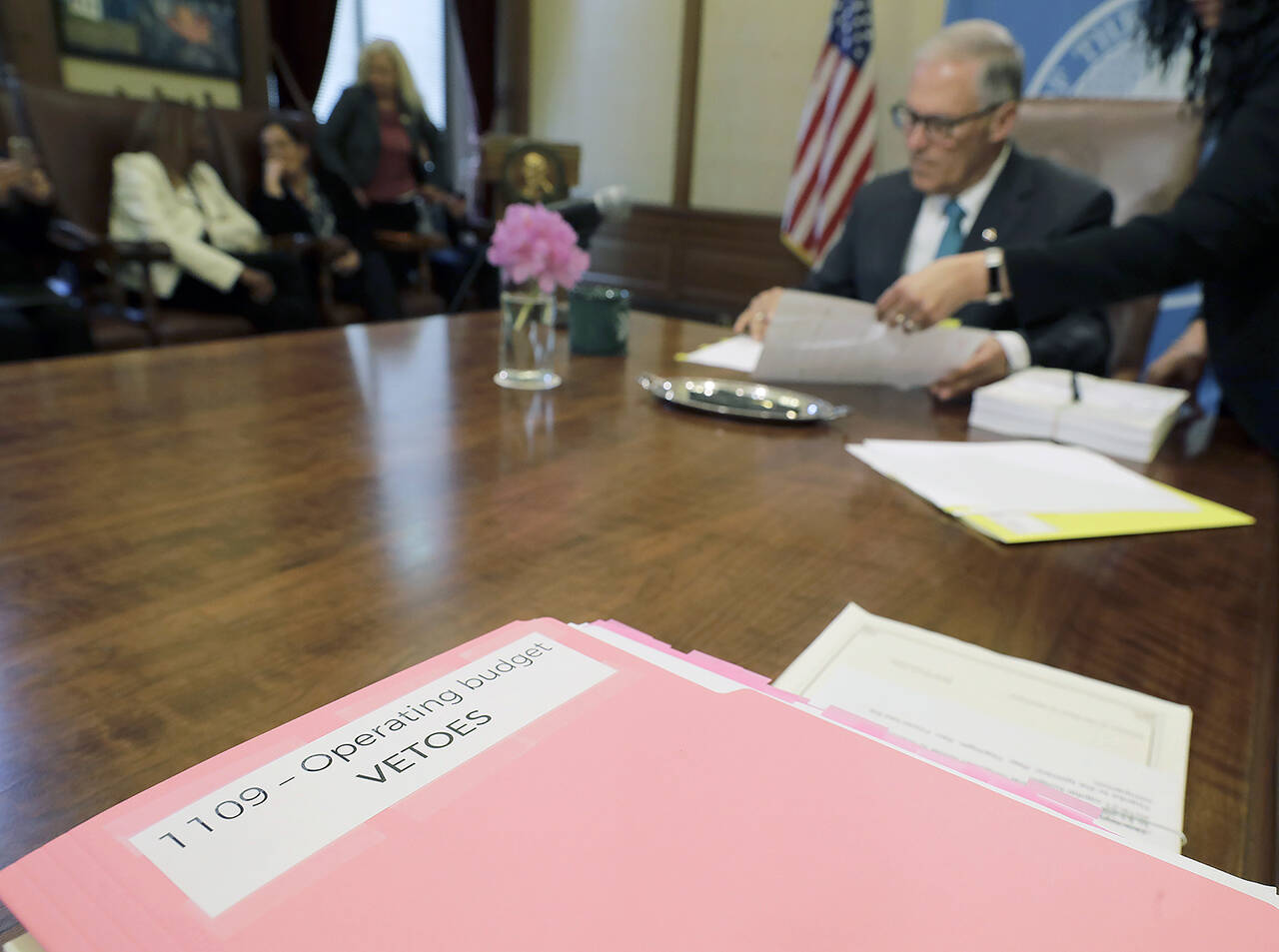OLYMPIA — State lawmakers are suing Gov. Jay Inslee, again.
The Legislature filed a lawsuit Monday alleging the three-term Democratic governor exceeded his authority when he vetoed language in a bill creating a clean fuel standard that tied the start of enforcement with the passage of a transportation funding package.
Lawmakers’ seven-page filing in Thurston County Superior Court also contends Inslee crossed the same constitutional line in May when he removed single sentences in the new state transportation budget dealing with grants to transit service agencies.
When Inslee vetoed those same lines in the last spending plan, passed in 2019, lawmakers sued. In November, the state Supreme Court sided with the Legislature and invalidated those vetoes.
“Today’s court action is not about a policy decision, but about affirming the Legislature as a co-equal branch of government,” House Speaker Laurie Jinkins,D-Tacoma, said in a statement.
She said “there is no question” that House Democrats agree with Inslee on the urgent need for the clean fuel standard to combat climate change.
“We must act, but within the confines of the Constitution and state law,” she said. “Our commitment to saving the planet for future generations must not waiver, nor should our oaths of office.”
Inslee has 20 days to respond to the allegations.
Tara Lee, communications director for Inslee, expressed disappointment with the new suit.
“We remain confident that the governor acted within his legal authority with these vetoes,” she said in an email. “To be clear, current action on climate change is moving forward as a result of the governor’s actions. If he had not acted, the Legislature would be delaying crucial actions on climate.”
In Washington, governors can veto entire bills. They also can cross out entire sections of legislation. But a series of Supreme Court rulings make clear the state’s chief executive cannot veto less than an entire section.
In this case, lawmakers argue the governor vetoed less-than-full sections of two bills passed by the Legislature in April and signed by Inslee on May 17.
The first, House Bill 1091, established a new program to curb greenhouse gas emissions by reducing the carbon intensity of transportation fuels. Inslee deleted two paragraphs intended to synchronize compliance with the fuel standard with approval of a funding package. To date, there’s been no action on such a package.
This linkage was critical to securing support from enough moderate Senate Democrats to pass the bill. Inslee objected to the language.
“This type of legislative drafting demonstrates manipulation and is a palpable attempt at dissimulation,” Inslee said in his veto message in April. “I applaud the extraordinary efforts of the Legislature in moving this policy forward, but we cannot delay its implementation until some unknown time in the future — the crisis is now, and we must act now.”
The second piece of legislation is the two-year transportation budget. As he did in 2019, Inslee cut the line, which concerned eligibility factors used in the issuing of grants to transit agencies. The line appeared in multiple sections. He argued the language effectively amended existing law.
Lawmakers countered in their 2019 suit that if the governor wanted those lines out, he needed to remove the entire provision in which the disputed lines appear. Their position won out in front of the state Supreme Court last month.
“I expect the Supreme Court will strike down the vetoes we are challenging today, just as it did recently with our previous challenge to the governor’s partial vetoes,” Senate Minority Leader John Braun, R-Centralia, said in a statement.
“This is not a partisan effort to undermine the governor’s authority,” he continued. “This is a bicameral, bipartisan effort to preserve the Legislature’s lawmaking power. “
Jerry Cornfield: jcornfield@heraldnet.com; 360-352-8623; Twitter: @dospueblos.
Talk to us
> Give us your news tips.
> Send us a letter to the editor.
> More Herald contact information.

























